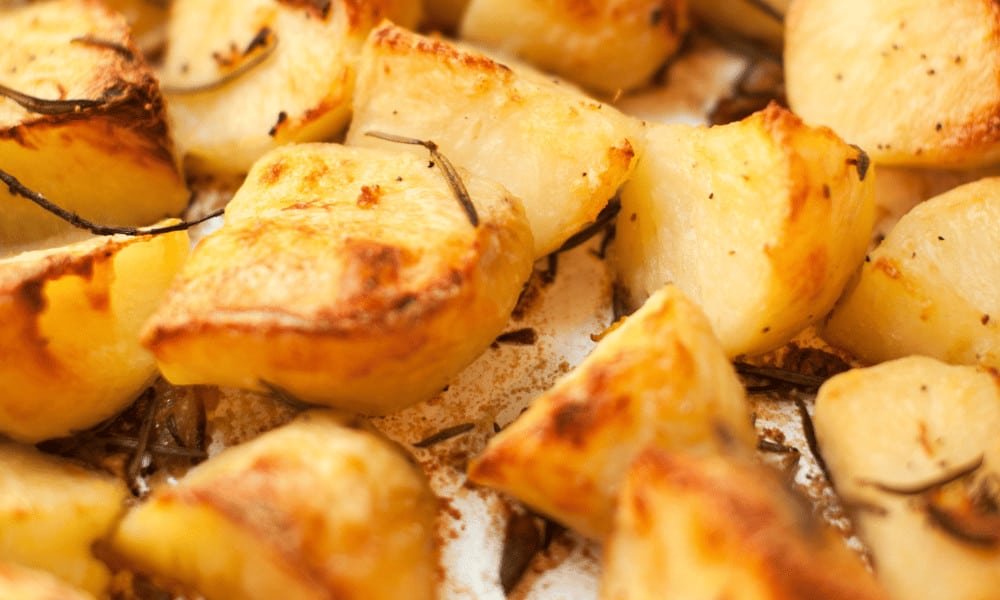Lamb fat has got to be one of the most flavoursome animal fats to cook it. It is, of course, completely unhealthy; however, chances are, you’ll only need a little of it. So, what do you do with any leftovers?
Can You Freeze Lamb Fat?
Yes, you can freeze lamb fat for up to 12 months. The best way to do this is to store the lamb fat in an airtight container until cool, then smooth off the top surface, seal the container, and place it into your freezer.
Do Does Lamb Fat freeze well? Yes
Can you refreeze Lamb Fat? No
How to Freeze Lamb Fat
Freezing lamb fat isn’t too complicated but there are a few steps you’ll want to take to ensure it freezes as well as possible:
- Pour Into a Container: Chances are, you won’t have a huge amount of fat in the first place but grab a small, portion-sized container and tip the lamb fat in carefully, trying not to get any on the rim.
- Allow to Cool: If the lamb fat isn’t allowed to cool before you seal it, then you’re likely to leave yourself with a level of dangerous bacterial growth. Condensation will form, which can lead to bacteria forming.
- Smooth the Top Surface: Smoothing off the top surface of the lamb fat is wise, as it will prevent much of the fat from oxidizing. This happens rarely, but it will essentially lead to the top layer of the fat losing flavour and texture.
- Seal: Push the lid onto the container, ensuring there is a tight fit the whole way around. If you’re not convinced the container is sealed entirely, then wrap it in a sheet of cling film.
- Freeze: Finally, pop the container of fat into the freezer, with a clear label, for up to 12 months.
3 Tips for Freezing Lamb Fat
Now you know how to freeze it, we’ve got our 3 top tips which we strongly recommend following when freezing lamb fat to have the best results:
Check the Seal
Fat is exceptionally good at absorbing aromas while it’s in your freezer. To ensure that this doesn’t happen and that your fat doesn’t start smelling like the potentially poor aroma in your freezer, we recommend sealing the containers as tightly as possible. You could even wrap the containers in a layer of cling film to be sure they’re well-sealed.
Just Refrigerate It
With lamb fat lasting roughly the same time in both the fridge and freezer, you might as well not bother freezing it and just leave it in the fridge.
Use an Ice Cube Tray
Freezing a whole container of lamb fat might not be ideal for how you usually use it. Considering recipes often call for a tablespoon or two of fat at most, consider using an ice cube tray to freeze increments of that much fat.
How Long Can You Freeze Lamb Fat?
You can freeze lamb fat for a very long time indeed – around a year at the very least.
The reason it freezes pretty well is that the process of pure fat going rancid is halted by the freezer, meaning that you don’t need to worry about it spoiling in there. Also, freezer burn won’t affect it, so the fat will remain at the level of quality that it was when you first froze it.
Lamb fat will last for roughly the same time in the fridge as it would in the freezer. You can keep it in the fridge for around 1 year in an airtight jar.
How Do You Defrost Lamb Fat?
You can defrost lamb fat at room temperature – simply place the container on a towel to absorb any condensation. We recommend storing it at room temperature since that will allow you to scoop and use small amounts from the container.
You can also use it from frozen if you have frozen the fat into ice cubes. Preheat a baking tray in the oven, then add your cube of fat, returning the tray to the oven. You can then cook vegetables or potatoes in the now thawed fat – does anyone fancy lamb fat roast potatoes?

Can You Refreeze Lamb Fat?
We advise against refreezing lamb fat.
Generally speaking, we advise against freezing any form of meat. The reason is that these products can sometimes harbour bacteria that become living when thawed and dormant when frozen. Therefore, when the food is thawed to be eaten, it can become dangerous.
Does Lamb Fat Freeze Well?
Yes, lamb fat freezes very well!
The main reason for this is the total lack of water content within it. Water expands and damages cells in other items, but in this case, there’s no water to damage the cells of the lamb fat. Therefore, it retains its quality well.
Related FAQs
If you’ve still got questions about freezing lamb fat or fat in general, then these may help:
Yes, generally, all animal fats, tallows and lards can be frozen. When in liquid form, pour it into an ice cube tray and freeze.


